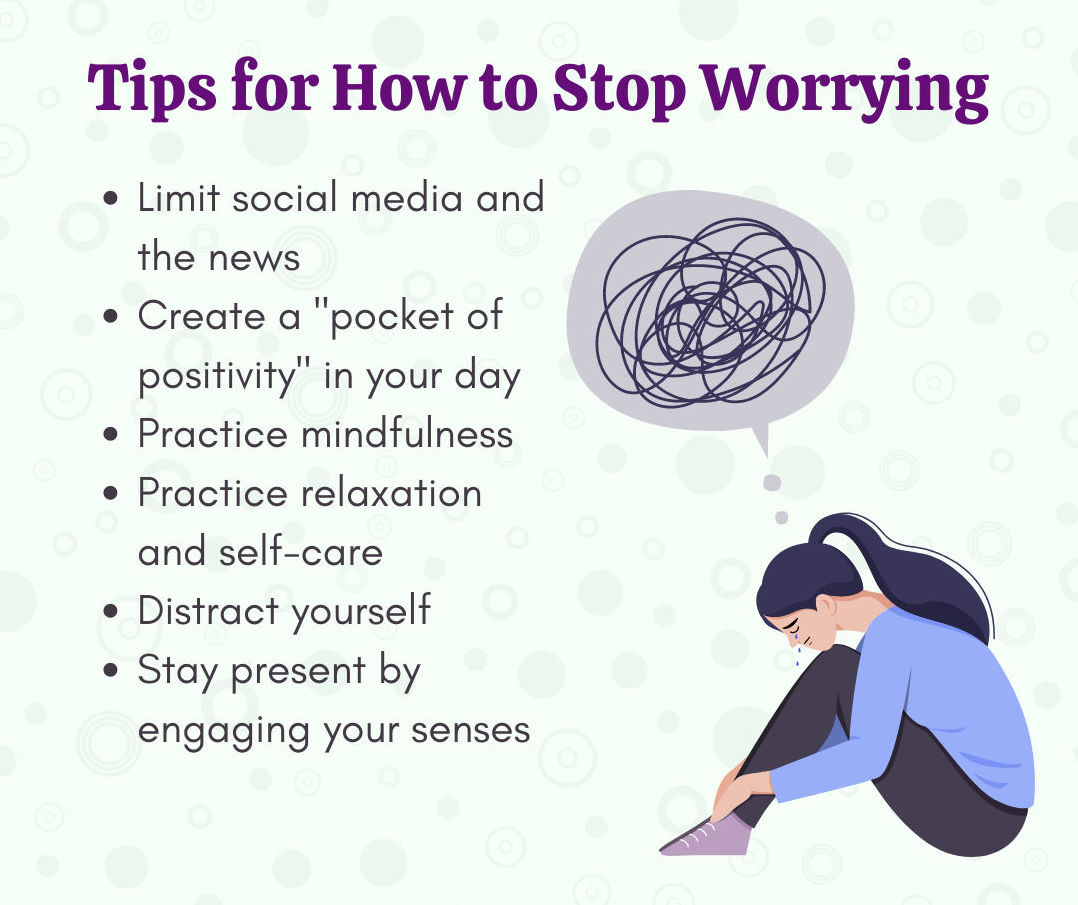How to stop worrying and start living
If you find that you are unable to stop worrying on your own, it may be helpful to talk to a therapist. Here are a few tips

Worrying is a normal human emotion. We all worry from time to time. However, when worrying becomes excessive, it can interfere with our ability to live our lives to the fullest.
There are a number of things that you can do to stop worrying and start living. Here are a few tips:
- Identify your worry triggers. What are the things that typically make you worry? Once you know what your triggers are, you can start to develop strategies for coping with them.
- Challenge your negative thoughts. When you start to worry, ask yourself if your thoughts are realistic. Are you catastrophizing? Are you jumping to conclusions? Once you challenge your negative thoughts, you can start to see things more realistically.
- Focus on the present moment. When you're worrying about the future, it's easy to get caught up in all the "what ifs." However, the future is uncertain, and there's no point in worrying about things that may or may not happen. Instead, focus on the present moment and what you can control.
- Take action. If you're worried about something, take steps to address it. This could involve talking to someone you trust, making a plan, or taking some other form of action. Taking action can help you to feel more in control and reduce your worry.
- Practice relaxation techniques. There are a number of relaxation techniques that can help to reduce worry, such as deep breathing, meditation, and yoga. Find a relaxation technique that works for you and practice it regularly.
Here are some additional tips for stopping worrying:
If you find that you are unable to stop worrying on your own, it may be helpful to talk to a therapist. A therapist can teach you coping skills and help you to develop a plan to manage your worry.

- Avoid negative people. The people you spend time with can have a big impact on your mood and outlook. If you're surrounded by negative people, it's going to be more difficult to stay positive and stop worrying.
- Get enough sleep. When you're well-rested, you're better able to cope with stress and anxiety.
- Eat a healthy diet. Eating a healthy diet gives your body the nutrients it needs to function properly. This can help to improve your mood and reduce stress levels.
- Exercise regularly. Exercise is a great way to reduce stress and improve your overall mood. Aim for at least 30 minutes of moderate-intensity exercise most days of the week.
Stopping worrying is not easy, but it is possible. By following the tips above, you can learn to manage your worry and live a happier and more fulfilling life.

 Fine End
Fine End 












